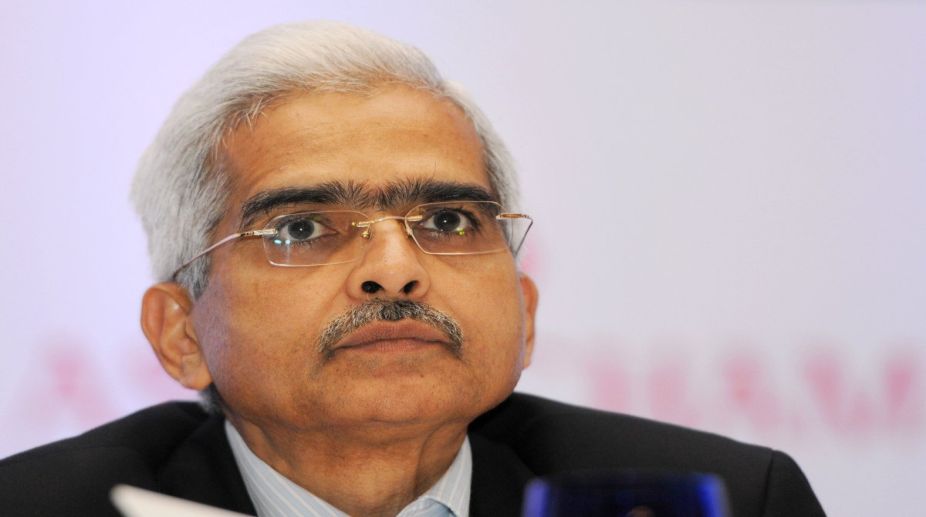Indian banks should further cut interest rates for borrowers to pass on the benefit of cash windfall from demonetisation, Economic Affairs Secretary Shaktikanta Das said on Friday.
The cash recall has seen about Rs.15 lakh crore making its way to the banking system.
Advertisement
The Reserve Bank has slashed the policy rate by 150 basis points, or 1.5 percentage point, since January 2015, effectively reducing the cost of funds for banks.
Speaking at the 50th annual meeting of the Asian Development Bank (ADB) here, Das said the impact of demonetisation on the economy was transient and will not spill over to the current fiscal.
India is estimated to have grown 7.1 per cent in 2016-17 and is projected to grow 7.5 per cent in 2017-18.
“Impact of demonetisation was very very transient and has not spilled over to the current financial year… Post demonetisation, the rates have come down, there is scope for further transmission of rates. I would expect that to happen. We see signs of revival in credit cycle,” he said.
Post cash ban, banks have reduced rates between 0.60-0.75 per cent, but on the ground, the effect of rate reduction is not visible.
On November 8last year, the government invalidated old 500 and 1,000 rupee notes, which made up 86.4 per cent of the total currency circulation.
As people swapped old notes for new ones or deposited them in accounts, banks suddenly became flush with liquidity.
“A lot of cash has come into the banking system. After December 30, in the past 3-4 months, banks have reduced their lending rates because there are low-cost deposits,” he said.
Das maintained that India will continue with its reforms and the goods and services tax (GST) will transform the way Indian economy functions.
Asked if India will stick to the July 1 GST rollout date, Das replied: “Absolutely”.
“GST is going to make a total transformation in the way Indian economy is functioning. It would improve competitiveness and make Indian economy far more efficient,” the secretary added.
GST will unify 10 different local taxes and make India one market for seamless transfer of goods and services.
Das made it clear that the government will simplify the FDI structure further and boost domestic manufacturing to maintain the growth trajectory.
He acknowledged that loans to corporates whose books are stressed are not picking up, but a lot of credit flow is happening in the MSME sector, individual housing and other loans.
He suggested that the Asian countries should desist from protectionism because Asia has benefited from open trade over the last two decades.
“Each Asian country should not retreat into a shell of protectionism because open trade over the last two decades has helped global growth. There may be short-term attraction of becoming protectionist, but Asian countries need to continue with regard to globalisation and open trade,” Das added.











